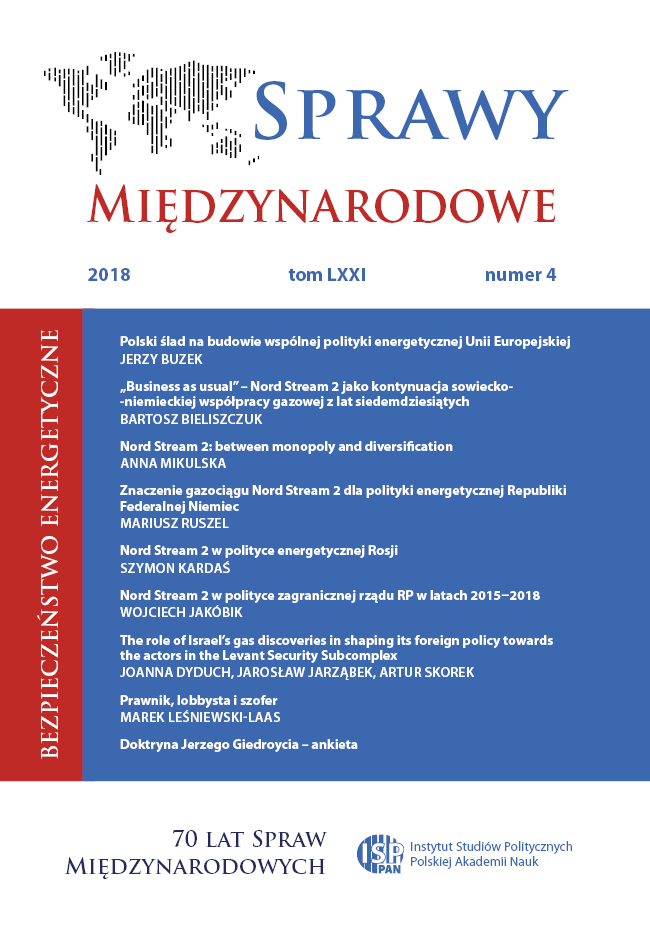Nord Stream 2 w polityce energetycznej Rosji
Nord Stream 2 in Russia’s energy policy
Author(s): Szymon KardaśSubject(s): Energy and Environmental Studies, Environmental and Energy policy
Published by: Instytut Studiów Politycznych PAN
Keywords: Nord Stream 2; Russia; Gazprom; foreign policy; neoclassical realism
Summary/Abstract: The purpose of this article is to show the importance of the Nord Stream 2 project for Russia’s external energy policy, for Gazprom’s strategy and other Russian economic entities. The analysis of the potential consequences of the implementation of this project for Russia and the Russian entities involved in it is based on theoretical assumptions of neoclassical realism. For Moscow, the construction of new gas pipelines is to enable the resignation from dependence on gas transit through Ukraine. Nord Stream 2 is also an important political tool for Russia in its relations with the European Union. It allows Moscow, on the one hand, to strengthen political influence in selected countries of the Union (mainly in Germany, but also in France and the Netherlands), and on the other to strengthen the divisions between EU Member States (some EU states are opposed to implementing new infrastructure projects with Russia). For Gazprom, the new gas pipeline increases the possibilities of flexible response to changes taking place on the European market. Finally, the implementation of costly infrastructure projects is extremely important for economic interests of Russian construction companies, which, thanks to state procurement, gain significant financial profits.
Journal: Sprawy Międzynarodowe
- Issue Year: 71/2018
- Issue No: 4
- Page Range: 93-111
- Page Count: 19
- Language: Polish

